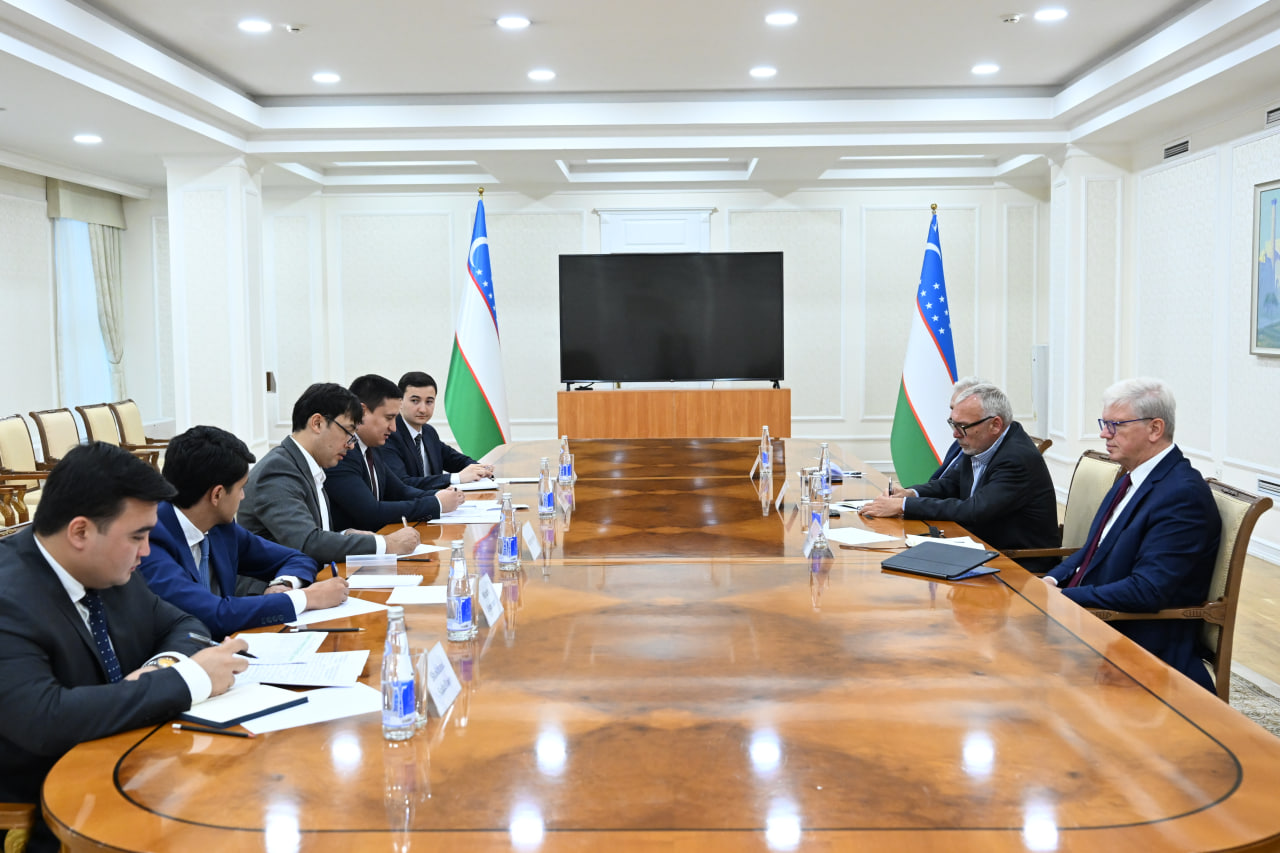A meeting was held at the Agency for Strategic Reforms with members of the International Advisory Council – Dr. Alfred Gusenbauer, Aleksander Kwaśniewski, and Štefan Füle.
Welcoming the guests, Director of the Agency B. Rakhmatov emphasized the progress achieved in bilateral cooperation. He noted that a number of reforms are being implemented in the pension and tax systems, as well as in education and demography, taking into account the Council’s recommendations.
Special attention was given to the development of the dual system of vocational education. The guests were informed about the establishment of the Agency for Vocational Education under the Cabinet of Ministers, aimed at improving the quality of workforce training and aligning education with labor market needs.
During the discussion, the sides reviewed the Council’s initiatives to expand cooperation between Uzbekistan and Austria, with a focus on tourism, smart infrastructure, and regional partnership projects.
The meeting also addressed plans to strengthen academic collaboration, including the upcoming 3rd Uzbekistan–Poland Rectors’ Forum, to be held in Bukhara in 2026, and the “Women in Tech” forum supported by the Polish foundation Perspektywy.
Dr. Alfred Gusenbauer underlined that by adopting a context-specific approach and applying international best practices suited to Uzbekistan’s realities, it is possible to achieve tangible results and ensure the long-term sustainability of ongoing reforms.
He also highlighted the importance of the President of Uzbekistan’s successful address at the UN General Assembly and his meeting with U.S. President Donald Trump, noting that these events further strengthened Uzbekistan’s international standing.
Aleksander Kwaśniewski drew attention to the profound transformation of modern communications, emphasizing that promoting positive news has become increasingly challenging. He stressed that active engagement on social media is a vital tool for increasing youth involvement and building public awareness of reforms.
Štefan Füle focused on the upcoming signing of the Enhanced Partnership and Cooperation Agreement, which, in his view, will serve as a clear demonstration of Uzbekistan’s growing diplomatic weight.
He also supported the initiative to train specialists abroad with their subsequent return to Uzbekistan, suggesting that a comprehensive program be developed to implement this idea.
In conclusion, the Council members expressed their readiness to support wider dissemination of information in Europe about Uzbekistan’s reform agenda, emphasizing that such communication efforts will help strengthen the country’s positive image and expand international cooperation.






